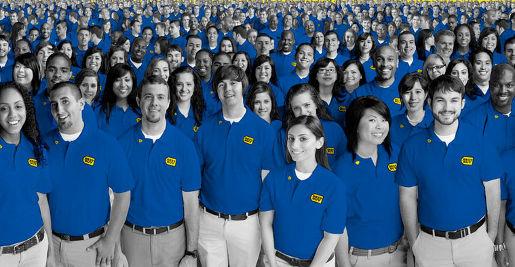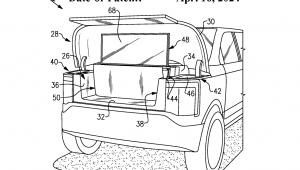Best Buy is Back, Baby

Yes, it's true that shopping malls have seen better days. And yes, companies like Sears and JC Penney are probably not going to see explosive growth anytime soon. Heck, these days even Victoria's Secret is having problems selling ladies' underwear. (I know - what is the world coming to?) But against all odds, including the distinct possibility of bankruptcy, big-box electronics retailer Best Buy is making a strong comeback.
Of course, you don't go to a store to buy CDs and DVDs anymore. But it turns out that people still need a well-stocked store to buy their electronics. It helps that Best Buy is fielding a knowledgeable sales staff who can answer questions (who knew - buying this stuff is confusing), and it has implemented free shipping and price matching. Their website is nicely integrated between stores and mail order and if you are particularly shopping for electronics, it is far easier to use than Amazon's vast and often weird offerings churned up by its search engine.
That all sounds pretty typical, but the company implemented those changes more aggressively than usual. For example, a lot of stores would "price match." That means you would bring back your receipt, and a print-out from Amazon, and after some hassle, the store would issue you a credit for the difference. Best Buy went much further - checking Amazon's prices and upfront adjusting their prices to be more competitive. Throw in buying online and picking up at the store, a place to bring back defective products, and servicing, and you have a business model that can actually compete.
A lot of the credit for those moves goes to chairman and CEO Hubert Joly. He took over the reigns in September 2012 and promptly ignored calls to hollow out the company and sell its assets and instead doubled down on the existing business, working hard to improve its weaknesses and grow its strengths.
To some degree, all stores suffer from drive-by-shopping. People take advantage of the opportunity to peruse the products in a store, then buy it online elsewhere. But as changes were implemented, people that came into Best Buy stores to look at a product, suddenly found it was easier to just buy it there, at about the same price.
The numbers don't lie. Since Joly assumed control, online sales have doubled to more than $6 billion; sales in established stores rose 6 percent in 2017. Thanks to solid performance and a stock buyback program, share prices are up nicely; Best Buy stock was selling for $12 in 2012, and it now up around $76.
Using the "If you can't beat 'em, join 'em" strategy, Joly has even inked a deal with Amazon; Best Buy will sell Amazon Alexa and Fire TV products. If nothing else, that shows Amazon's confidence in Best Buy's ability to move products. This move matches Best Buy's smart decision to bring Apple and Samsung into the stores (reportedly, Best Buy rents the floor space to them and Apple and Samsung provide employee training), thus gaining heavyweight allies.
Best Buy can also offer troubleshooting and servicing that, at least for now, Amazon cannot. Service served up $2 billion in revenue for the company last year and the company offers a 24/7 tech support program on an annual subscription basis.
Of course, in such a tough business environment, nothing in the future is assured. Clearly, online sales, even if they are through Best Buy, will continue to challenge physical store sales. As retail malls wither, consumers may increasingly lose the habit of physical shopping, and may ignore all stores including Best Buy. that. And if the turnaround is mainly due to brilliant management, what would happen if management decides to leave?
For now, Best Buy's turnaround is good news for anyone who values audio-video gear. I think it is essential, for long-term health of the industry to have a dedicated and trusted bricks-and-mortar store where people feel comfortable buying their TVs, phones and stereos. It's a shame that many bricks-and-mortar competitors have dropped out (remember Circuit City?) but if Best Buy is the best of them, it deserves to own the market. For consumers, such a monopoly isn't particularly worrisome; online sales will ensure that prices stay competitive.
I will forever miss the mom and pop TV and stereo stores of yesteryear. Big box stores just aren't the same. But I would much rather buy a TV from a place where I can actually stare at it and a stereo at a store where I can listen to it, instead of looking at a picture of it. Hang in there, Best Buy. We need you.




























































